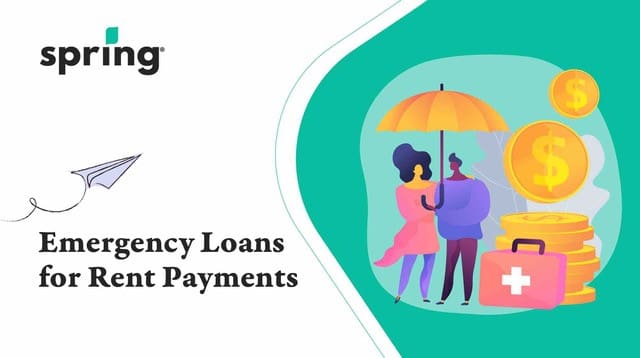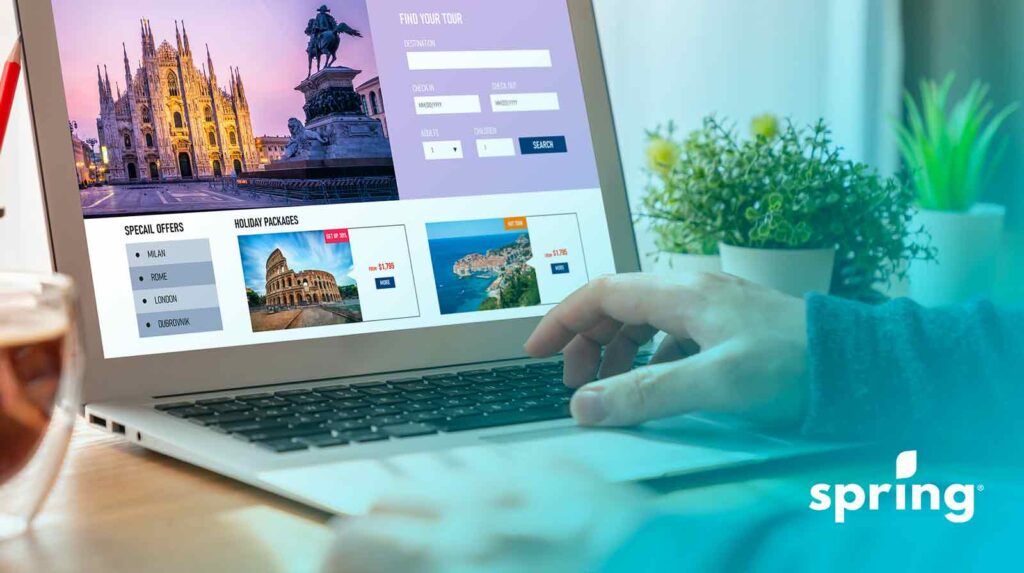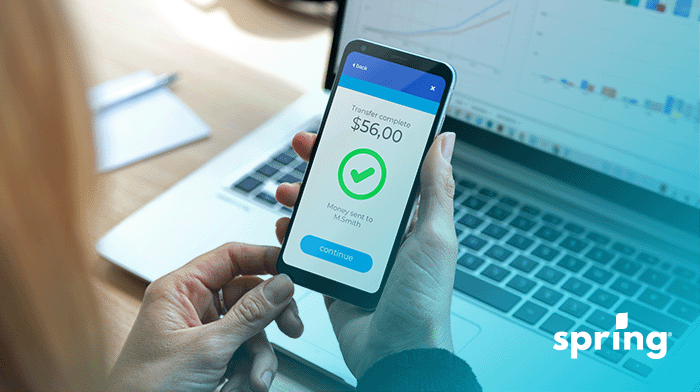When it comes to getting a loan, especially for rent payments, there are quite a few options available to you. Depending on what your income is, you may also be eligible for a rent subsidy to help you with paying rent, which could help you avoid getting more rent loans in the future.
Rent Loans if You Have Bad Credit
Even though it isn’t the most ideal situation, even with bad credit, in credit counselling, or even going through collections, sometimes financial hardship happens and you need money fast, especially if you are behind on your rent payments. If you don’t have a line of credit and an overdraft isn’t an option, you may have to turn to a personal loan or a payday loan.
Personal Loans through online lenders are available to those with bad credit, but keep in mind that there might be a very high interest rate attached to it. This is because a lower credit score is a higher risk to a lender, this helps to mitigate their risk.
A personal loan will have a loan term with set monthly payments, but most allow you to put money on the principal loan amount whenever you like. Payday loans, however, have an even higher interest rate than personal loans, and have a much faster payback period that often results in taking out another payday loan to pay off the first one.
The last option you may want to consider to pay your rent, is to use a credit card if you have a high credit limit, at least high enough to cover the rent. Whether you have a regular credit card or secured credit card, you could avoid the high interest rate if you make your payment before the due date.
You can also get a credit card cash advance for a cash advance fee but, depending on who your landlord is, they may accept credit card payments so be sure to ask if that is an option that might work for you.
Rent Loans if You are Unemployed
Looking for emergency rent loans if you are unemployed may seem impossible, but most loan companies do not require you to be employed, they just require you to have an income. Of course, you are required to prove that you do have a steady income by providing, paystubs, 90 days of bank statements from the bank account you are paid into. The minimum income is usually between $1200 – $1500 per month and can be from multiple different sources such as:
- EI
- Disability
- Canada Child Benefit
- Pension Plans
- Financial Assistance Programs
Rental Loans for Investors
As a rental property investor, getting a loan for your rental property is often much easier since you already own the property. You should be able to take out a loan, depending on your credit score, either at a bank, credit union or alternative lending institution.
Rental Loans for Students
As a student, there are a few options if you are in a pinch to pay your rent. While you may have a difficult time getting a regular personal loan to cover living expenses, you could qualify for a student loan. That being said though, even if you work part time, you could qualify for a personal loan or payday loan as well. As a student, depending on where you live, you may qualify for a rental subsidy which can provide partial payments.

Rent Subsidies in each Province and Territory
Depending on where you live and what you make, you could be eligible for a rent subsidy to help you with the rising costs of living. Keep in mind that the provinces and territories that have rental subsidy programs have a province maximum allowable cost that is reasonable to the rental market that they will pay. Most of the benefits are based on the market worth, not what the landlord is asking.
British Columbia
In BC, BC Housing has a few different programs available for those who need help with their rent. There is the Rental Assistance Program (RAP) and the Shelter Aid for Elderly Renters (SAFER). To apply for either all you need to do is fill out your application, attach your proof of income along with your bank statement, rental agreement and proof of your age.
RAP provides a rental subsidy for low income families. In order to qualify, your total household income has to be less than $40,000 before taxes, have worked at any point in the last year and have 1 or more dependent children. In order to stay eligible you need to reapply every year.
SAFER, on the other hand, helps seniors afford their rent with a rental subsidy. In order to qualify you must:
- be at least 60 years old
- spend at least 30% of gross income on rent
- be a Canadian citizen
- live in Canada for at least 12 months
- have at income less than $2,750 for couples and $2,550 for singles (Zone 1)
- have an income less than $2,446 for singles and $2,666 for couples (Zone 2 and Zone 3)
Zone 1: (Before, part of Metro Vancouver) Aldergrove, Anmore, Belcarra, Bowen Island, Burnaby, Coquitlam, Delta, Langley, Lions Bay, North Vancouver, Maple Ridge, Milner, New Westminster, Pitt Meadows, Port Coquitlam, Port Moody, Richmond, Surrey, Tsawwassen Vancouver, West Vancouver and White Rock.
Zone 2: Abbotsford, Agassiz, Central Saanich, Chase, Colwood, Dawson Creek, Esquimalt, Fort St. John, Highlands, Kamloops, Kelowna, Lake Country, Langford, Lantzville, Logan Lake, Metchosin, Mission, Nanaimo, New Songhees, North Saanich, Oak Bay, Peachland, Penticton, Prince George, Saanich, Saanichton, Sidney, Sooke, Squamish, Terrace, Union Bay, Victoria, View Royal and West Kelowna
Zone 3: All other areas of the Province
Alberta
Alberta also has two different rent programs. One is for rental subsidy and the other provides rental units.
The Canada-Alberta Housing Benefit is where the Canadian and Alberta governments join together to help low income families in Alberta. In order to qualify for the rental subsidy you must apply through your housing management company. The amount you will receive is based on the rental market and your income.
In order to get affordable housing, there are minimum income requirements depending on how many people are in the household and where you live in Alberta. In order to apply, first you find the low income housing you wish to move into then apply through the management company. These places are available on a first come first serve basis.
Saskatchewan
In Saskatchewan, there are 2 different types of rental subsidies as well. There is the Family Rental Housing Supplement and the Disability Rental Housing Supplement.
The Rental Housing Supplement is meant for families who are low or moderate incomes who also have children that are under 18. The amount of supplement you will receive is based on:
- family size
- city or town the rental is located
- total rent amount
- total gross income of the previous month
The Disability Housing Supplement is meant for those without children that have supports in the house that support physical or cognitive disabilities. In order to receive the supplement you will need to supply the same information for the Rental Housing Supplement as well as the assessed need for disability housing supports.
Manitoba
In Manitoba, their program is called rent assist. This program is available to those who receive Employment and Income Assistance (EIA) and housing costs. It is also available to other individuals who are low income and do not receive EIA.
If you are on EIA, the amount of rent assist that you receive is based on:
- your monthly rent check amount
- mortgage amounts and other housing fees if you own
- how many people in the household
- if you live in subsidized housing or not
- if utilities are included in the rent or not
- if you are renting a room, what your portion is and how many are in the house
If you are not on EIA, in order to qualify you must:
- pay rent for housing that isn’t subsidized
- have a net income of $24,640 for an individual
- have a net income of $28,050 for a single person 55 or older
- receive Disability Tax Credit or CPP Disability Benefits
- have a net income of $31,440 for two people
- have a net income of $39,680 for 3 or 4 people
- have a net income of $49,440 for 5 or more people
- have dependent children with a net income less than $39,680 of 3 or 4 and less than $49,440 with 5 or more people
- be a Canadian Citizen or permanent resident
Ontario
The program in Ontario is slightly different then those of other provinces. It is called the Canada-Ontario Housing Benefit and is eligible to those who are on, or eligible to be on the Centralized Waiting List for Rent Geared-to-Income subsidized housing. This program is administered by the Province of Ontario, but it is a closed application process. Priority is given to:
- those who are homeless
- survivors of domestic violence and human trafficking
- those who are Indigenous
- those who have disabilities and required modified units
The amount received is based on household income and how many people are in the family. In order to receive this benefit, you must agree to be removed from the Centralized Waiting List for Rent Geared-to-Income subsidized housing program.
New Brunswick
New Brunswick offers the Rent Supplement Assistance Program. In order to qualify for it you must either:
- have a need for special purpose accommodations
- spend 30% or more of income on rent, and even moving to a another adequate dwelling in the same are would consume for than 30% of income
- pay less than 30% in an inadequate dwelling but an adequate one would cost more than 30%
If you qualify for this program then your rent would be reduced by 30% and that would be paid directly to the landlord from the program. There are stipulations that the unit would have to meet since the program focuses on providing adequate housing at an affordable cost.

Nova Scotia
Canada-Nova Scotia Targeted Housing Benefit is a program in Nova Scotia that helps homeowners and renters afford a place to live. It is focused on those who are homeless or who are at risk of homelessness. How much you receive as a renter depends on the market and how much you make, home owners who qualify could receive up to $200 per month.
In order to qualify as a renter, you must:
- reside in Nova Scotia and have status in Canada
- be spending at least 30% of gross income on rental needs
- fall within the income limits where you live
In order to qualify as a homeowner, you must:
- own or have life interest in your home (assessed for property tax purposes below $300,000 in the Halifax Regional Municipality or $200,000 anywhere else)
- live in the home permanently
Prince Edward Island
In PEI, there is the Family Housing Program. This program provides those who are low income, in poor housing conditions or are in need of an adequate place to live.
In order to be eligible they look at:
- the number of people in the household
- your income
- condition of your current housing
The amount you make and what size dwelling you need are coordinated.
- Bachelor – $25,500
- One Bedroom – $33,000
- Two Bedroom – $39,500
- Three Bedroom – $44,500
- Four Bedroom – $44,500
Yukon
In the Yukon, they offer the Canada-Yukon Housing Benefit. In order to qualify for this program you must:
- be a Canadian citizen, permanent resident or have refugee status
- live in the Yukon for at least 3 months
- fall within the affordable housing limits
- not be on any other housing or subsidy program
- less than $100,000 in assets
- file your annual income tax return
- have a qualifying income source
Nunavut
The Nunavut Housing Corporation has a Public Housing Program currently. You must be low income in order to qualify and fill out an application. Applications are assessed based on total gross income, and rents are based on income brackets.
Northwest Territories
Lastly there is the Canada-Northwest Territories Housing Benefit. This benefit is eligible to those living in the NWT who pay more than 30% of their income to rent. This means that you would only pay a parietal rent payment and they would pay a portion of the rent that is above the 30% of your monthly income up to the market value up to a maximum of $800 per month. The eligibility requirements are:
- have lived in the NWT for at least 12 months
- are a renter and not receiving any other housing assistance or subsidy
- fall within the Affordable Housing Limits
- have a SIN (Social Insurance Number)
This benefit is also considered a non-taxable break and is counted towards your annual household income.
Let Spring Financial Help
If you need a loan to pay your rent fast, even if that means you need to pay rent tomorrow, and you don’t qualify for rental subsidy, it isn’t quite enough, or it hasn’t kicked in yet, don’t worry. We can help! Spring Financial specializes in personal loans for those with all credit types and can get you the money the same day as approval.
All of our loans are open, meaning you can pay the principal at any time on top of the automatic monthly payments. It is easy to apply, you can complete our online application in just 3 minutes. And, as an added bonus, we report all payments to both Transunion and Equifax. This means that getting a loan with Spring Financial can help boost your credit score as long as you make all of your monthly payments. Apply online today, or give us a call at 1-888-781-8439 to speak with a representative.








